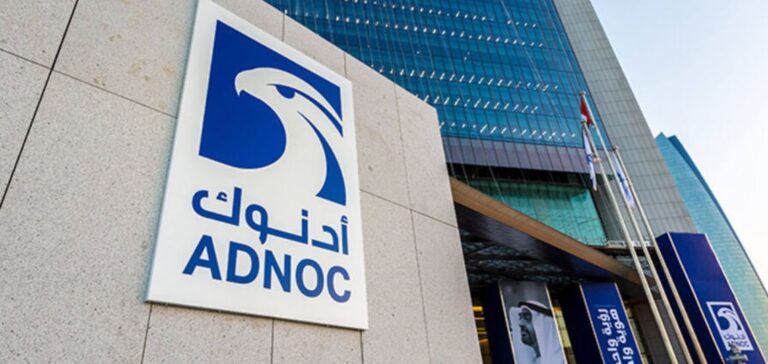United Arab Emirates oil giant Adnoc announced on Monday that it had revised upwards its climate ambitions to achieve carbon neutrality by 2045, five years ahead of the date initially set by the wealthy Gulf state, which is hosting COP28 later this year.
Climate change: Adnoc announces measures to achieve carbon neutrality
One of the world’s leading exporters of crude oil, the country had promised to achieve a zero-carbon target by 2050, while the organization of the UN climate conference in Dubai at the end of November drew criticism from environmentalists.
“Adnoc is accelerating its decarbonization plan to bring forward its ambition of net zero to 2045, from its previous target of 2050,” the company announced in a statement.
It also plans to achieve “zero methane emissions by 2030”. Adnoc intends to “increase its investments and redouble its decarbonization efforts”, backed by initial funding of “$15 billion for low-CO2 solutions”, the company assured.
The oil giant also declared that it would “reduce its greenhouse gas emissions” by around five million tonnes by 2022, notably by using solar and nuclear energy “to power 100% of its land-based operations”.
This announcement comes at a time when an exceptional heat wave is sweeping across the northern hemisphere, particularly the Mediterranean countries. The United Arab Emirates have appointed Adnoc boss Sultan Al Jaber. To chair COP28, causing concern among environmentalists. All the more so as the oil magnate has been a strong advocate of the development of the hydrocarbon industries. Experts consider the latter to be major contributors to global warming through CO2 emissions.
But Sultan Al Jaber felt that the focus should be on the nascent and costly CO2 capture technologies, rather than on reducing hydrocarbon production.
In a recent interview with AFP, he nonetheless deemed it “inevitable” and “essential” to reduce the use of oil and gas, while calling for realism to avoid an “energy crisis” at a time of growing global demand.
In mid-July, in the face of skepticism from environmental activists. Mariam Almheiri, Emirati Minister of Climate Change, said the country was determined to do “much more” to combat global warming.






















